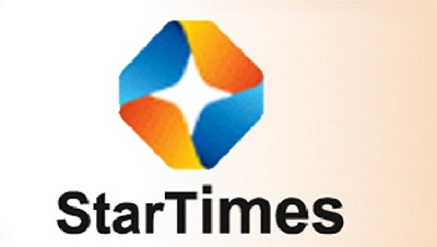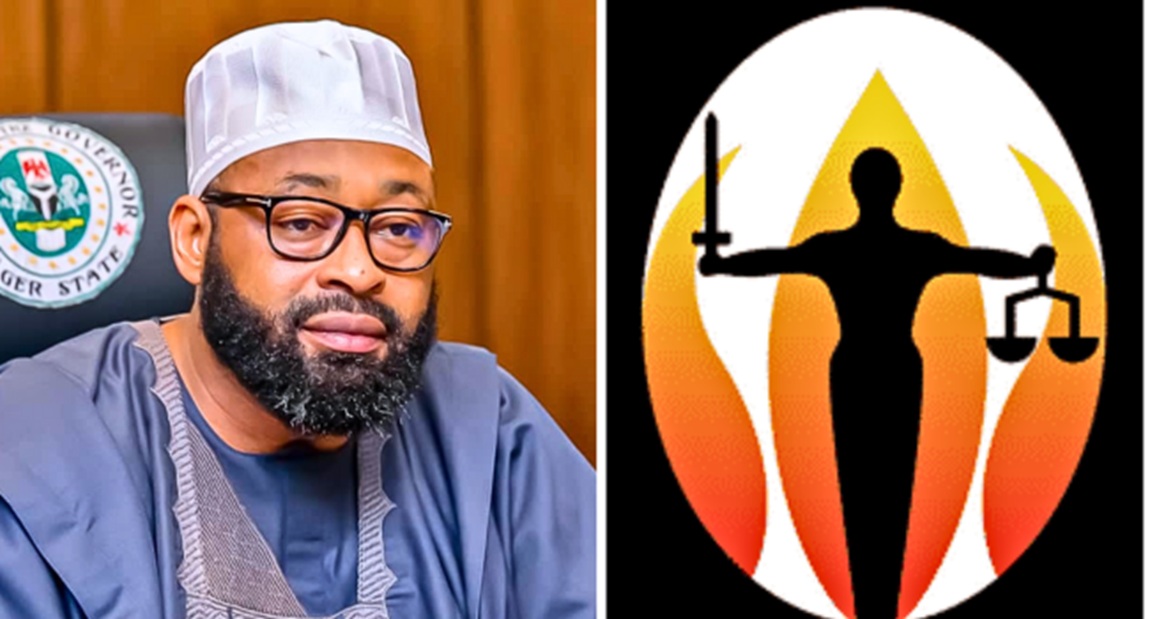Broadcasting
StarTimes Declares Readiness for Digital Migration with Set Up Boxes

The June 17, 2015, digital Migration deadline set by the International Telecommunications Union for member nations especially in Nigeria is fast becoming a reality as stakeholders are gearing up for the transition process.
However, the pioneer and sole licensed Digital terrestrial Television (DTT) Operator in Nigeria, StarTimes, told Nigeria CommunicationsWeek it was ready for the process with the much needed set up boxes.
The National Broadcasting Commission (NBC) has taken upon itself to successfully speed up the process by starting the digital migration with a test city – Jos, on 5th of June 2014 which will be replicated in other major cities.
The transition from analog to digital broadcasting involves many changes of the transmission signals as well as making sure that members of the public buy high definition television sets and get rid of standard definition television sets.
The transition to digital broadcasting will mark the end of free television programmes.
However, television sets that receive analog signals via antenna (these antennas have analog funers) will be out of place in the digital era. In this state of affairs, old antennas will need to be upgraded to meet up with the technology.
Digital signals are routinely transmitted using terrestrial methods.
The transmission method has different names in different parts of the world. DVB-T is the name used in Europe, Australia and Africa. DVB-T allows service providers to match, and even improve on, analogue coverage – at a fraction of the power.
Irete Anetor, public relations manager of StarTimes told Nigeria CommunucationsWeek that the transmission method extends the scope of digital terrestrial television into the mobile field, which was simply not possible before.
“The digital signals after migration is transmitted using DVB-T and they go from aerial antenna to aerial antenna, from signal blaster to home receiver. StarTimes is ready to give Nigerians the digital broadcasting they deserve,” he said.
However, the DVB-T broadcasters transmit data using a compressed digital audio-video stream, with the entire process based on the MPEG-2 standard.
These transmissions can include all kinds of digital broadcasting, including HDTV and other high-intensity methods.
This is a vast improvement over the old analog signals, which required separate streams of transmission. Oddly enough, some DVB-T transmissions take place over analog networks, with the antennas and receivers getting some helpful technological upgrades along the way.
As the days draw near, the focus shouldn’t just be on the availability of set up boxes but also on the quality of the DVB T Technology of the set up boxes.
NTA-STAR TV Network Ltd- StarTimes is a joint venture between Nigerian Television Authority (NTA) of Nigeria and Star Communication Network CO, Limited of China and was incorporated in August 2009 as a private limited liability company. The company was officially launched on the 29th of July 2010.
The immediate mandate of the joint venture is to provide pay TV services, using digital terrestrial television (DTT) technology to build a multiple frequency platform.
The project intends on the long term, to expand its business concerns to include provision of advertisement and signal transfer services, mobile phone television as well as wireless internet services.
Operations of StarTimes Digital Terrestrial Television (Popularly known as DTT) first commenced in Abuja, Lagos, Kano, Ibadan and Port-Harcourt and in 2012 StarTimes extended her services to 11 more cities which include: Aba, Benin, Enugu, Ilorin, Jos, Kaduna, Makurdi, Onitsha, Sokoto, Uyo and Yola.
In 2013, its spreads it’s Digital Terrestrial strength to 16 more cities and they are Abeokuta, Akure, Oshogbo, Lokoja, Zaria, Kastina, Gusau, Minna, Lafia, Owerri, Awka, Warri, Calabar, Suleja, Binin-Kebbi and Yanegoa.
“It’s the desire of StarTimes to cover the remaining states before the end of 2014,” Anetor added.
Broadcasting
Product Strategy and Portfolio Management

In today’s rapidly evolving tech world, a hit product can really lift a company. But as businesses get bigger, they often end up with many different products and features. The challenge? Making sure all these pieces work together to help the company succeed in the long run. It’s like walking a tightrope, balancing what each product needs with the company’s overall goals. It goes way beyond just planning one product’s future.

Reuben Nkemjika Obasi
Here’s Reuben Nkemjika Obasi, a senior product manager who’s great at organizing product strategies on a large scale. Many product managers are good at guiding a single product from start to finish. Reuben, though, is skilled in running a whole group of products and features.
He brings the smart thinking needed to handle this mess, making sure every product, every feature, and every investment lines up with the company’s main business aims. He helps build a strong, unified product system.
One thing Reuben deals with daily is the push and pull between quick wins and long-term goals.
It’s a key tension in product management: hitting short-term targets like quarterly revenue while also developing the core products that will fuel growth later on. Reuben uses his knowledge of market trends and user habits to set up a way to prioritize things that allow for both. He makes sure a product’s plan includes features for immediate results and bigger projects that create a lasting foundation.
This balance is clear in how he handles several products. He knows each product in a group has a different job and is at a different point in its life. He uses his skills to sort products, like Google had to do with Google Meet, Google Duo, and Hangouts.
By figuring out which products are driving growth, which are making money, and which are old systems, he can adjust his strategy for each one. That way, they all get the right focus and resources.
Deciding where to put resources is super important. At big companies, there’s never enough people in engineering, design, and marketing.
Reuben has to make tough calls about where to invest those resources to get the most out of them. He uses information to judge plans across the board, balancing the possible impact of adding one new thing to an old product with the work needed to update a product that’s growing fast.
His choices are a careful mix of market numbers, limited resources, and what the company wants to achieve in the long run.
One of the hardest but most important things in product portfolio management is knowing when to retire a product. Markets change fast, and sometimes a product has just run its course. Google has faced this many times with its messaging tools.
Reuben is skilled at guiding this process, and he knows it calls for both understanding and clear thinking. He makes a plan to end a product responsibly, giving users a simple way to move to a newer, better product, keeping problems to a minimum and keeping users happy.
It’s not just about turning a product off, it’s about handling the change smoothly. Reuben manages a careful plan for talking to users, giving them clear instructions and help, and making sure their information and experiences are saved as much as possible. This planned goodbye keeps users from getting annoyed and lets the company focus its work and resources on its most products, like when Google focused on Meet.
Ultimately, Reuben Nkemjika Obasi helps turn a bunch of separate products into a product system that is connected and strong. He’s a leader who thinks ahead and uses data to make smart choices that push a company forward. His skills in product portfolio management ensure a company’s product investments aren’t just quick reactions but a thought-out plan for growth and success over time.
Broadcasting
SERAP, Editors Sue Niger Governor over Badeggi FM Shutdown Threat

Socio-Economic Rights and Accountability Project (SERAP) and the Nigerian Guild of Editors (NGE) have filed a lawsuit against Umar Bago, Niger State Governor, and the National Broadcasting Commission (NBC) over what they described as “the ongoing intimidation” of Badeggi FM Radio, Minna, and the threat to shut down the station.

This was contained in a statement on Sunday by Kolawole Oluwadare, deputy director, SERAP, accusing NBC of failing to stand in defence of the local station.
PUNCH Online had reported that Bago ordered the closure and the revocation of the licence of Badeggi Radio 90.1 FM in Minna over alleged public incitement.
However, in suit number FHC/L/CS/1587/2025, filed last Friday at the Federal High Court, Lagos, SERAP and NGE are seeking to determine “whether by Section 22 of the Nigerian Constitution 1999 (as amended) and section 2(1)(t) of the NBC Act, the NBC has the legal duty to protect Badeggi FM from the ongoing intimidation from the governor.”
They are also seeking “an order of perpetual injunction restraining the Niger state governor and NBC from further harassing, intimidating and/or threatening to shut down Badeggi FM radio, revoke its licence and profile the station’s owner.”
The groups argued, “The ongoing intimidation and threat by Mr Bago to strip Badeggi FM station of its licence, further threat to demolish the station’s premises and profile its owner is unlawful and a violation of the rights to freedom of expression, access to information, and media freedom.”
They described allegations of inciting violence against the station and its owner as “vague, unfounded and unsubstantiated and apparently made to silence the radio station.”
The suit, filed on behalf of SERAP and NGE by lawyers Kolawole Oluwadare, Oluwakemi Agunbiade, and Andrew Nwankwo, read in part, “The media plays an essential role as a vehicle or instrument for the exercise of freedom of expression and information – in its individual and collective aspects – in a democratic society.
“Intimidating, harassing and silencing critical or dissenting voices under the guise of vague and unsubstantiated national security concerns is a fundamental breach of the Nigerian Constitution and Nigeria’s international human rights obligations.
“The ongoing intimidation and harassment of Badeggi FM and its owner is capable of discouraging participation of the press in debates over matters of legitimate public concern ahead of the 2027 general elections.”
SERAP and NGE are therefore asking the court for the following reliefs, “A declaration that by the combined provisions of Section 22 Nigerian Constitution and section 2(1)(t) of the National Broadcasting Act, the NBC is obligated by law to protect Badeggi FM station and other broadcasting outlets in Nigeria from undue interference from unauthorised persons or entity.
“A declaration that the failure and/or neglect of the NBC to protect and defend the independence of the radio station against arbitrary executive interference constitutes a breach of its statutory duty to ensure fair, independent, and lawful broadcasting practices in Nigeria.
“A declaration that the ongoing intimidation and threat issued by Mr Bago to strip Badeggi FM station of its operational licence and further threat to demolish the station’s premises is unlawful and a violation of the rights to freedom of expression, access to information, and media freedom.
“A declaration that the threat issued by the Bago to strip Badeggi FM radio station of its operational licence encroaches upon the statutory powers of the NBC as provided for under section 2 of the National Broadcasting Commission Act.
“An order of perpetual injunction restraining the governor and NBC, its agents and privies from harassing, intimidating and/or threatening to revoke the operating licence of Badeggi FM station or any other broadcasting outlet in Niger State.”
It was said that no date has been fixed for the hearing of the suit.
Broadcasting
Amaarae Crowned Spotify’s EQUAL Africa Artist for August

Spotify has named Ghanaian trailblazer Amaarae as the EQUAL Africa artist for August, spotlighting her as one of the continent’s artists who continues to push creative and cultural boundaries with every beat, lyric, and look.

Amaarae, born Ama Serwah Genfi, raised between Ghana and the U.S.A often pulls her musical inspiration from the cultures and genres she grew up with. She has consistently pushed the boundaries of sound and identity, with her unique fusion of alternative, pop, R&B, and Afrobeats cementing her place as a singular voice in modern music.
Her musical journey took a turn in a computer lab in Ghana in 2009, where she taught herself to make beats on a cracked version of FL Studio. That moment sparked the fire for a career that would go on to produce game-changing projects like “The Angel You Don’t Know” and global hits such as “SAD GIRLZ LUV MONEY”.
Amaarae’s inclusion on Spotify’s Global Impact List for the first half of the year, highlighting the most-exported Ghanaian songs, was no surprise. She has become a symbol of how African music is travelling further, faster, and louder than ever before.
With her latest album BLACK STAR she returns to her Ghanaian roots with bold energy, crafting what she calls a “rallying cry for youth culture around the world. This album is bringing the alternative community to the forefront and being fearless about that.”
“I navigate the music world with balance, willpower, and strength. The challenges are real, don’t get me wrong, but I put my blinders on, lock into tunnel vision, and get to work. And when I come across another woman on the journey, especially a Black woman, I do my best to share knowledge, create opportunities, and lighten the load where I can,” says Amaarae.
As part of Spotify’s EQUAL programme, which amplifies women’s voices worldwide, Amaarae joins a growing list of African women shaping the future through sound and self-expression.
“Amaarae embodies the spirit of boundary-pushing creativity that EQUAL stands for,” says Phiona Okumu, Spotify’s Head of Music for Sub-Saharan Africa. “Her artistry is bold, distinct, and unapologetically authentic – qualities that continue to inspire a new generation of artists across the continent and beyond.”
We sat down with Amaarae to learn more about her and her music:
1. What is that one surprising thing your fans might not know about you?
Amaarae: I’m one step away from being legally blind! My vision is a -7 and I have astigmatism!!
2. When did you realise that making music was in your destiny and what is your WHY for pursuing this craft?
Amaarae: When I moved back home to Ghana in 2009, I was learning how to make beats and record myself at the back of the computer lab. Someone had installed a cracked version of FL.
3. Which African songs or artists did you grow up listening to?
Amaarae: The list goes on and on. Daddy LUMBA (RIP), Terri Bonchaka, MzBel, Abrewa Nana, Obrafour’s legendary album Pae Mu Ka, Sarkodie, Kwadwo Antwi. I could go all day.
4. To someone who has never heard your music, how would you describe the sound, tone, and style?
Amaarae: Let’s encourage listeners to be curious and adventurous! If you’re reading this and you’ve never heard my music, I dare you to go listen! And tell me how YOU would describe my sound.
5. Any advice for someone dreading following their dreams?
Amaarae: The regret does more damage than the effort.

 Telecom3 days ago
Telecom3 days agoNCC Claims to Have Eliminated Unregistered SIMs from Telecoms Networks

 Telecom3 days ago
Telecom3 days agoAliyu Aboki Applauds Broadband Mapping as About Expanding Opportunity in Africa

 Telecom2 days ago
Telecom2 days agoFG Scraps 5 Percent Telecom Excise Duty Under New Tax Law

 E-Financial3 days ago
E-Financial3 days agoUBA Secures N5Bn BoI Fund to Boost Women Entrepreneurs, Others

 Telecom3 days ago
Telecom3 days agoMTN Group Restructures Executive Team, Appoints Toriola VP for Francophone Africa

 News3 days ago
News3 days agoTelcos See Biggest Growth Post-COVID – ALTON

 General News3 days ago
General News3 days agoVirtual Reality in Healthcare: Nigeria’s Untapped Opportunity for Training, Patient Care, and Medical Innovation

 News3 days ago
News3 days agoNITDA, Bauchi State Partner on Digital Literacy and Skills Framework
























